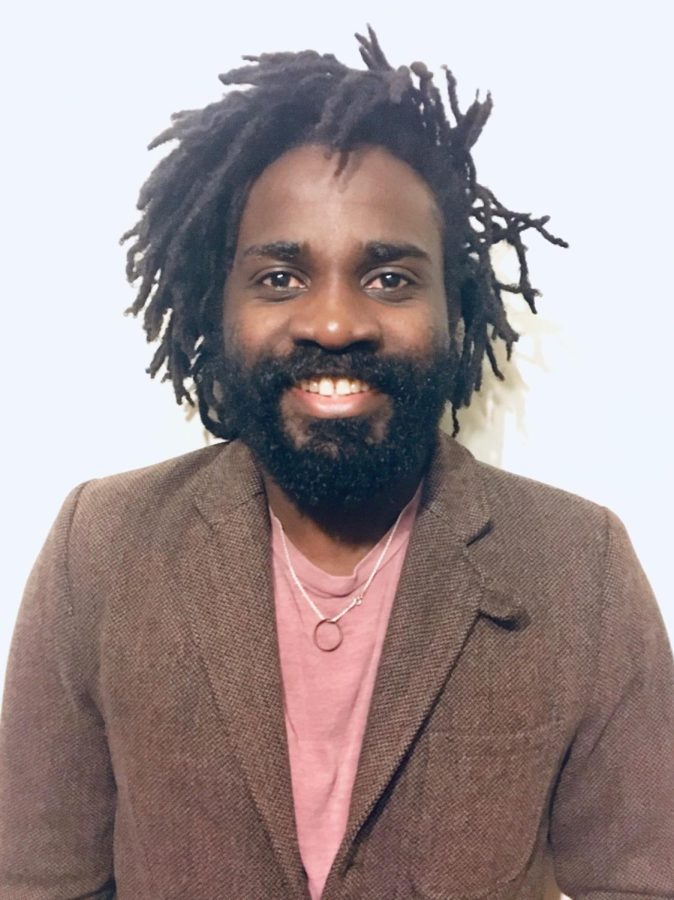OPINION: The Notre Dame Cathedral fire and the future of government
April 24, 2019
Last Monday when my friend, Seth Murray, sent me a picture of the Notre Dame Cathedral on fire, I wept. I wept because I thought it would burn to the ground and I would never get to touch its walls.
I grew up admiring the cathedral. By the time that I was 15, I had read the book “Notre-Dame de Paris” by Victor Hugo three times. I had memorized the lyrics of all the songs in the musical of the same name. I was more interested in the French culture than my Haitian culture. All the books that I read were in French, so it is not a feat that I know more facts about the cathedral than the average French person.
To learn the cathedral was burning down before I’d ever stepped in it was devastating. Luckily, this did not happen. The cathedral was saved and, better yet, a group of philanthropists hurriedly came into the rescue and offered millions of dollars for the reconstruction efforts. At first, I was elated by this news. I was happy to hear how many other people share my admiration for this monument. But the more I thought about it, the more uneasy I became.
I became wary for a different reason than most people. While I have read some positive reactions to the millions raised by these millionaires and billionaires, people have also asked — why were millions given to one of the richest institutions in the world, the Catholic church, when the cathedral belongs to France? Why was Flint still going without clean water? What about the black churches that were burned down in the South? How come these people could afford to give so much money when they always complain that they cannot pay more in taxes?
All of these are valid points, but I am noticing something even more concerning. These philanthropic acts were another step toward the destabilization of government as we know it. Charity is replacing good governance. The main reason for government — to provide for and lead the people — is being replaced by a group of rich people. We are in the new era of noblesse oblige, my friends.
This is no more apparent than here in the United States. With a growing and continued mistrust in the governmental institutions, and an administration that seems to relish in dismantling these institutions, the fate of democracy — the ability for the people to self-govern — has never been in more jeopardy. The American people seem to expect the super-rich to fix their problems more and more versus the government. Mark Zuckerberg and his team at Facebook are expected to make sure there is no more meddling in the 2020 election, which makes one wonder — if they really pull it off — why would we need the government to organize election in the future?
This is not, of course, simply an American problem. The reliance on charity from the super rich has become a worldwide reality. The American-Senegalese singer Akon has been praised for his charitable work in electrification efforts in Africa. Soccer stars like Didier Drogba and Sadio Mané have built hospitals in West Africa. And closer to us yet, Lebron James largely sponsored and supported the I Promise school. The names Bill and Melinda Gates are now synonymous to the fight against malaria in Africa.
Governmental institutions in the poor countries are playing second fiddle to these charitable people and organizations. I witnessed it in Haiti. I saw how the NGOs took over the reconstruction process in the aftermath of the 2010 earthquake. I saw how insignificant the Haitian government became and how that has crippled any important work it attempted to do afterward.
These charity organizations, despite all their good intentions, failed Haiti miserably. They failed not because they did not care about Haiti, not because they were corrupt (maybe a little). They failed Haiti because they did not have the tools and the data to make real change. The government had these tools.
Jeff Bezos’ $2 billion donation would be better served if it went on paying taxes or paying his employees fairer wages. Same with the donations that poured into Haiti after the earthquake. They would be better used if they were spent on empowering the government, thus the people. I am saying this as someone who is well aware of how corrupt the Haitian government can be, but I also know that corruption thrives and is more apparent in poverty. Haiti is no more corrupt that the U.S. The difference is the pie is bigger in the U.S., so when someone takes a slice here, it does not diminish it too much.
It is no secret that there is corruption within the government institutions, but at least we can keep them accountable. Whereas a billionaire who pillaged his way into his billions is often regarded as a hero, thus untouchable.
To continue on this road by relying on the generosity of the super-rich and adopting trickle-down policies is a return to feudalism as my friend, Seth Murray, once told me. To expect the likes of Zuckerberg, Bezos and Gates to do the work of our governments is to relinquish our power as a democratic people. It did not work with Andrew Carnegie, and it will not work with Jeff Bezos.
Sony Ton-Aime is a columnist. Contact him at [email protected].












